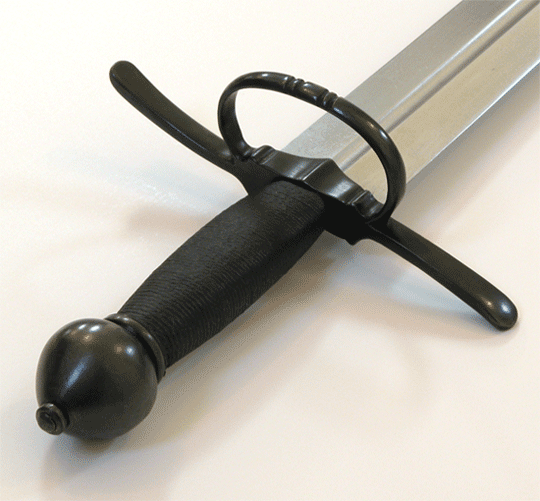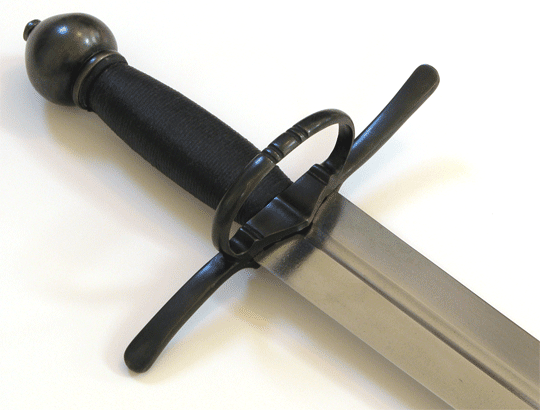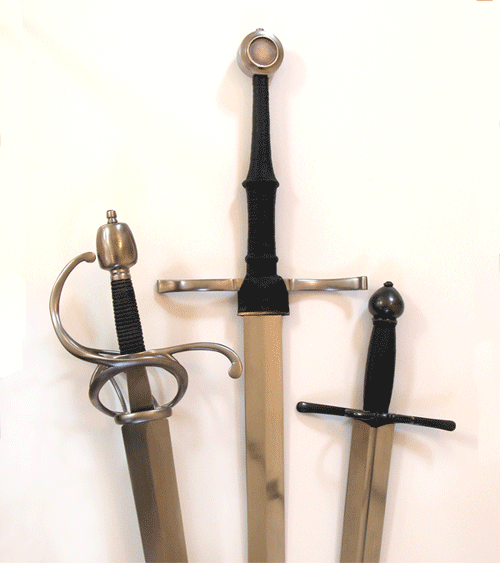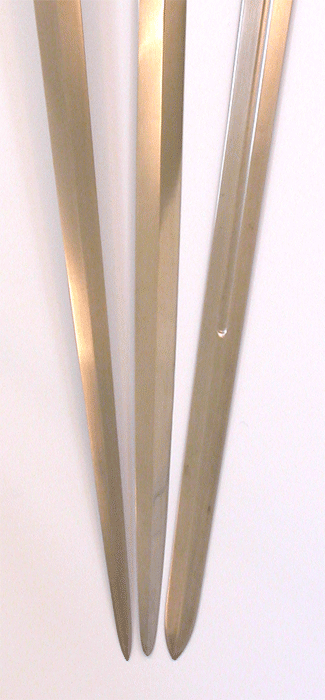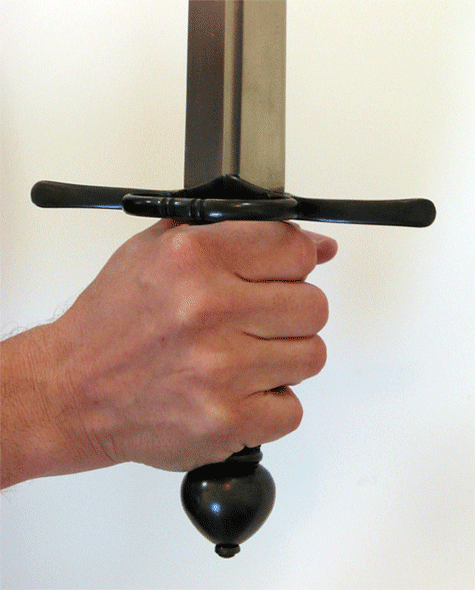My original idea was to make a riding sword in the Italian style of ca. 1530, with an elaborate grip of ferrules and bars. Some of those swords were blued and gilded, so I blued the furniture but realized that the piece suddenly resembled German military swords of the last half of the 16th c. I finished the piece in that style and I'm pleased with the result. This is a cut-oriented sword, with a POB just under 5" below the cross. That seems to be reasonable for a cutting sword, and the overall light weight makes the piece surprisingly handy. Feels like I should use it with a buckler or target.
The sword is shown below next to the other reproduction swords in my collection--all German now. The other two pieces shown are my newly-acquired A&A Town Guard sword and my customized A&A Dürer. The tips are aligned in this photo, so you can get some sense of scale. The last photo shows the tips of the three blades for comparison.
